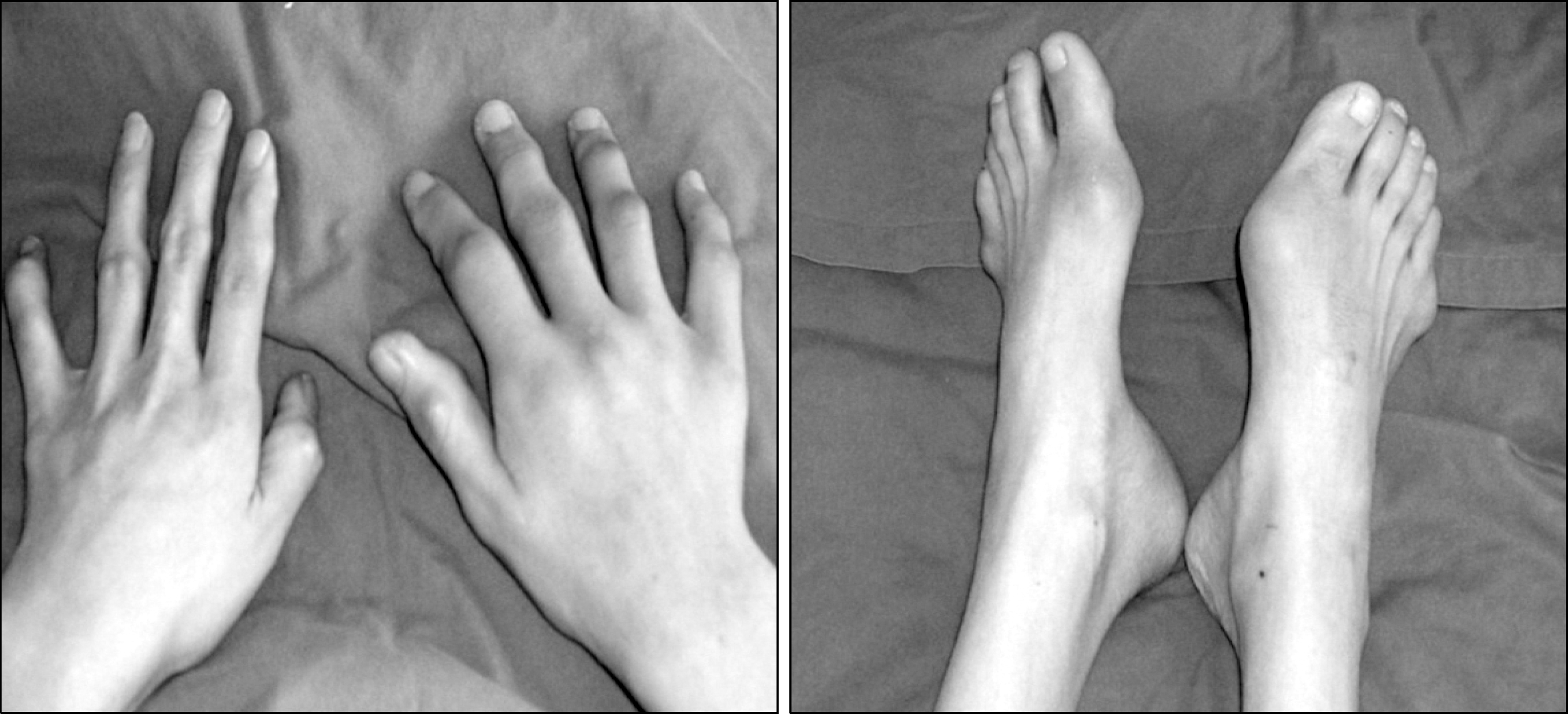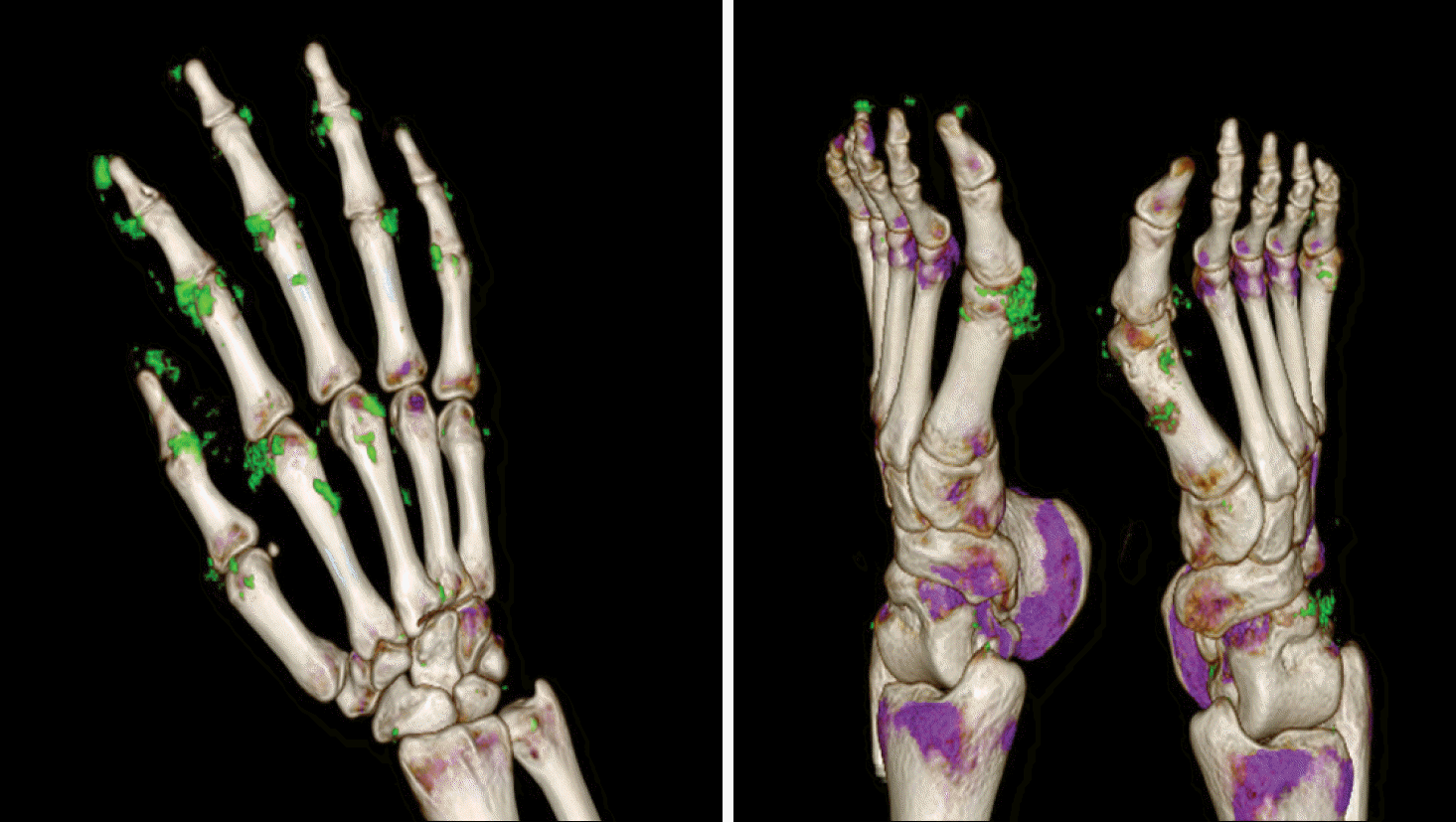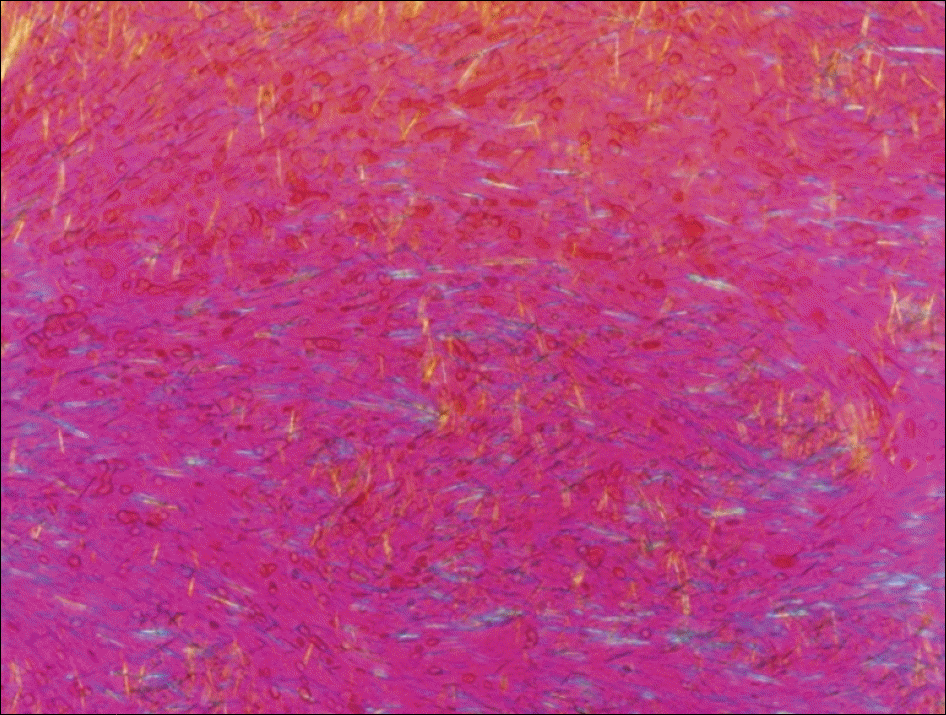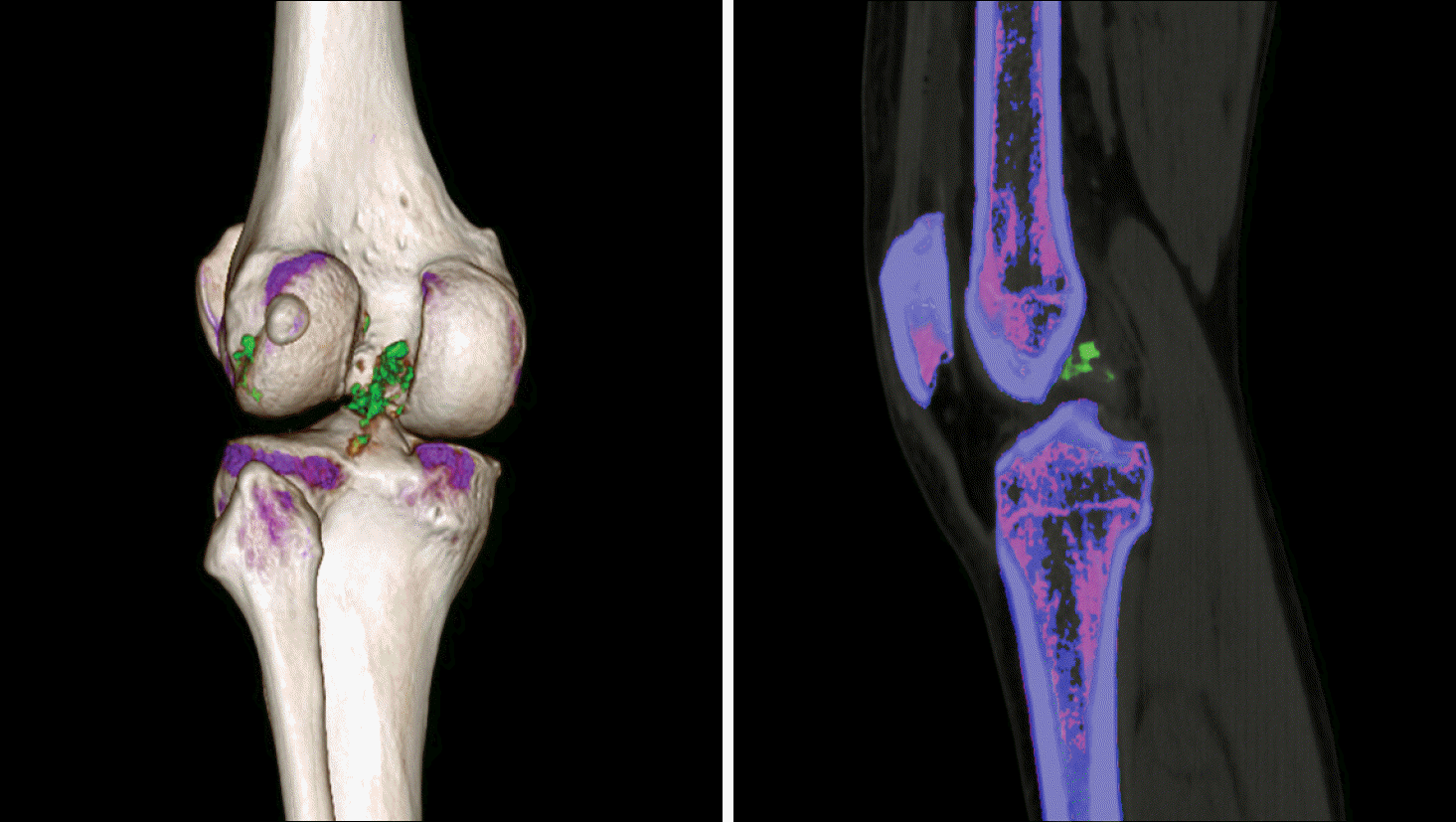Abstract
Gout is the most common crystal-associated arthropathy. Gout is caused by deposition of monosodium urate crystals within the joints, and it is often associated with hyperuricemia. Acute gout involves the first meta-tarsophalangeal joint (podagra) in approximately 50% of cases and its peak incidence occurs in middle age. Although the clinical features can help with making the diagnosis of gout, many inflammatory diseases such as cel-lulitis, pseudogout and septic arthritis can mimic or coexist with it. The definitive diagnosis requires polarized light microscopy of the fluid aspirated from the involved joint and this shows needle-shaped, negative birefringent monosodium urate crystals. However, joint aspiration can be technically difficult, and none of the conventional imaging modalities for gout specifically identifies the chemical com-position of uric acid. The advent of Dual-Energy CT (DECT) is a noninvasive method that has the potential to confirm gout and monitor the response to treatment. DECT scan can show monosodium urate deposition by using color coding. The authors performed DECT scans for detecting uric acid deposition and confirming the gout noninvasively.
References
1. Choi IY, Whang KS, Ahn SC, Kim YH. A clinical study on gouty arthritis. J Korean Rheum Assoc. 1994; 1:169–74.
2. Choi HK, Mount DB, Reginato AM. American College of Physicians; American Physiological Society. Pathogenesis of gout. Ann Intern Med. 2005; 143:499–516.

3. Monu JU, Pope TL Jr. Gout: a clinical and radiologic review. Radiol Clin North Am. 2004; 42:169–84.

4. Thiele RG, Schlesinger N. Diagnosis of gout by ultra-sound. Rheumatology (Oxford). 2007; 46:1116–21.

5. Schumacher HR Jr, Becker MA, Edwards NL, Palmer WE, MacDonald PA, Palo W, et al. Magnetic resonance imaging in the quantitative assessment of gouty tophi. Int J Clin Pract. 2006; 60:408–14.

6. Reimann AJ, Rinck D, Birinci-Aydogan A, Scheuering M, Burgstahler C, Schroeder S, et al. Dual-source computed tomography: advances of improved temporal reso-lution in coronary plaque imaging. Invest Radiol. 2007; 42:196–203.
7. Johnson TR, Krauss B, Sedlmair M, Grasruck M, Bruder H, Morhard D, et al. Material differentiation by dual energy CT: initial experience. Eur Radiol. 2007; 17:1510–7.

8. Graser A, Johnson TR, Chandarana H, Macari M. Dual energy CT: preliminary observations and potential clinical applications in the abdomen. Eur Radiol. 2009; 19:13–23.

9. Nicolaou S, Yong-Hing CJ, Galea-Soler S, Hou DJ, Louis L, Munk P. Dual-energy CT as a potential new diagnostic tool in the management of gout in the acute setting. AJR Am J Roentgenol. 2010; 194:1072–8.

10. Choi HK, Al-Arfaj AM, Eftekhari A, Munk PL, Shojania K, Reid G, et al. Dual energy computed tomography in tophaceous gout. Ann Rheum Dis. 2009; 68:1609–12.

11. Schumacher HR Jr, Becker MA, Edwards NL, Palmer WE, MacDonald PA, Palo W, et al. Magnetic resonance imaging in the quantitative assessment of gouty tophi. Int J Clin Pract. 2006; 60:408–14.

12. Anonymous. Report of the united nations scientific com-mittee on the effects of atomic radiation to the general assembly. 2000.
Figure 1.
The images visualize multiple tophi around the proximal interphalangeal joints of the right hand and the 1 st metatarsophalang-eal joint of the left foot.

Figure 2.
The dual energy computed tomography images demons-trate uric acid deposits (green color) on multiple joints of the right hand and both feet.





 PDF
PDF ePub
ePub Citation
Citation Print
Print




 XML Download
XML Download